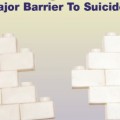
In the aftermath of yet again, another mass shooting, I have found myself questioning what is contributing to the consistent rise in mass murders that often end in suicide? While at a friend’s house the other night, her husband and I discussed the issue. “As a therapist,” he asked, “what do you think the problem is? Is it a gun control problem or a mental health problem?” This is often the question asked by many in our society. The media addresses the issue and the families of the victims urge our government to take control. My response to my friend’s husband was different from what one might assume. While I could easily argue that both are contributing factors, there is an additional element that nobody seems to want to address. That is the issue of psychotropic medications (otherwise known as psychotherapeutic medications prescribed for a variety of mental wellness disorders), and the consistent increase in the number of prescriptions written to people of all ages. I am beginning to wonder about the role of psychotropic medications and suicide.
While researching this topic I ran across the following article (Click here) that sheds a brighter light on how these medications impact those that suffer from mental illness. It has been reported that many of these mass shooters were on at least one of these drugs. This is a highly sensitive topic, so I want to make my opinions on the matter crystal clear. I believe that psychotropic medications have changed the lives of those that suffer from mental illness. I have witnessed individuals diagnosed with severe mental disorders go on to live “normal” lives because of the these medications. However, I do believe they are over-prescribed in our country and are often advertised as a “cure-all” for those who suffer from mental illnesses, such as depression and anxiety.
So what exactly does the topic of mass murders have to do with suicide? How is this linked to the loss of my father? They both share one common element: psychotropic medications. I am not a neurologist, and I don’t pretend to be one. While I know a decent amount about how these medications impact the brain’s chemistry, I do not know enough about it to argue that these medications make people violent or want to end their life. In fact, I do not even believe this is the case. What I do believe is that medications are used in the place of therapy and personal connection. I believe that they can decrease an individuals desire to seek assistance in the time of need. We no longer talk about our problems, or try to work through them. Instead, we swallow a pill in hopes that it will make us happy. Psychotropic medications are no different from medication for cholesterol. You can’t eat a hamburger and french fries everyday, take your pill, and expect to no longer have high cholesterol. The same is true for psychotropic medications. These medications can help someone feel better, but they are not magic. They do not make an unhappy marriage happy. They do not change our perception of ourselves. They do not make someone no longer feel guilt, remorse, or shame. Yet, this is what we as a society often believe. Take this pill, and life will be good. It just doesn’t work like that.
As is the case with many other individuals who have taken their life, my father was taking psychotropic medications. According to the woman who was prescribing them, “He didn’t want to do the work, he only wanted to take medications.” I could state a number of opinions here, but I will save that for another day. Did the psychotropic medications lead to his suicide? No, I do not believe so. However, I do believe that the belief that often accompanies these medications did. With the consistent rise in suicide rates, why have we not looked at the impact of these medications? We talk about mental health and gun control, but never medications. Is it just me, or do we think it is time to start?




I am with you 100% on this! Over prescribed by many different forms of doctors with the hopes you will swallow the pill and it will all go away. I love that you write this blog! There are many people that need to hear this. Thank you for inspiring!
Thank you Amber! It amazes me that the topic has yet to be addressed by the media. We talk about gun control and mental health but not medications. In my opinion all THREE should be addressed.
This is interesting. I too believe meds are over prescribed, and they are not a “cure all.” I studied teen suicide attempts for my PhD and found many psychological and social factors that impact upon those with difficulties. I’ve also written for Ezine Articles about mass murders.
This is a great discussion because it’s multi-faceted and my take on it relates more to personality development, inter generational Injunctions and attributions that impact upon mental health and mental illness. It’s so fascinating.
Dr. Banting, thank you for the response. I would love to take a look at the articles that you have written. It is such an interesting topic, and one that continues to baffle me. It continues to bother me that the topic of medication is not discussed when we talk about suicide and mass murders. Yet, everyone continues to ask, “what is the problem?” I would love to connect with you to further discuss this topic and review the research you have done!
Meds can be helpful in some severe cases, but the latest studies – not the ones by big pharma – show they are no more effective than a placebo. That mental illnesses/depression is caused by brain chemicals gone awry is still just a theory. There are no tests that can prove it. Even if it is true, there has to be a reason things aren’t right. Allopathic medicine doesn’t look at the whole body the way it should. MD’s are taught to dispense drugs made by the corporations that fund the research, and own the medical schools, AMA, and FDA. Many doctors know nothing of the pills they are passing out except for what the drug reps tell them.
Mass killings were almost unheard of before 1989…the year Prozac came out. I have talked to and read accounts of people who, when prescribed these drugs, have an almost overwhelming urge to kill themselves and/or others. I shudder to think of how many are in prison for life or on death row because of doing something they would never do if not for these drugs; of how many innocent lives have been lost.
The media won’t report on this because big pharma is too powerful. Money before people, you know. Okay, I’m getting carried away here. Sorry.